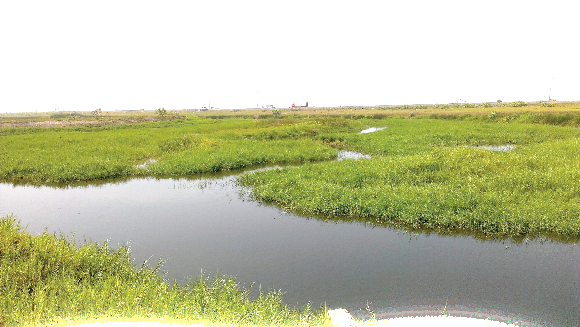- Login to ASPnet | Ghana Commission for UNESCO | Government Agency Responsible for the coordination of Ghana's contributions to and presence at UNESCO
Tema Ramsar invasion- Dr Kwame Nkrumah’s tears

Sunday afternoon on January 24, 2021, a white tipper-truck loaded with concrete debris from a demolished structure was heading in the direction of the Sakumo Ramsar Protected Area in Tema.
It was a good enough signal to follow it. It eventually got to the edge of the natural water course of the wetlands.
With the help of an assistant, the truck tipped the debris into the swampy section. It was obvious that this was one of many trips by the tipper-truck.
Sadly, they were simply playing their part in the destruction of the Ramsar Site. Sadly, it will be reasonably accurate to assume that the Tema Ramsar Site is now beyond restoration.
You can make a lot of money burning fossil fuels, digging up wetlands, pumping fossil water out of aquifers that will take 10,000 years to recharge, overfishing species in international waters that are close to collapse and so on — Ramez Naam
Ramez Naam is an American adjunct professor born in Egypt who teaches energy, environment and innovation related themes.
His quote about the human impact and restoration of our natural resources and environment applies to Tema as it does to many more places around Ghana and the rest of the world.
Today, we are drilling so many boreholes for water and filling up wetlands to build houses without a detailed assessment of the impact of these destructive actions.
I have seen this phenomenon all over urban areas, especially in Accra and Tema. The most worrying areas are in Dansoman, near Pambros, and Sakomo Ramsar Protected Area. Our Ramsar sites are under serious threat and authorities must simply arrest this.
The two satellite images of the Sakumono Ramsar Site. What is the impact of the destruction of the Sakumo Ramsar site?
Credit: DAILY GRAPHIC
